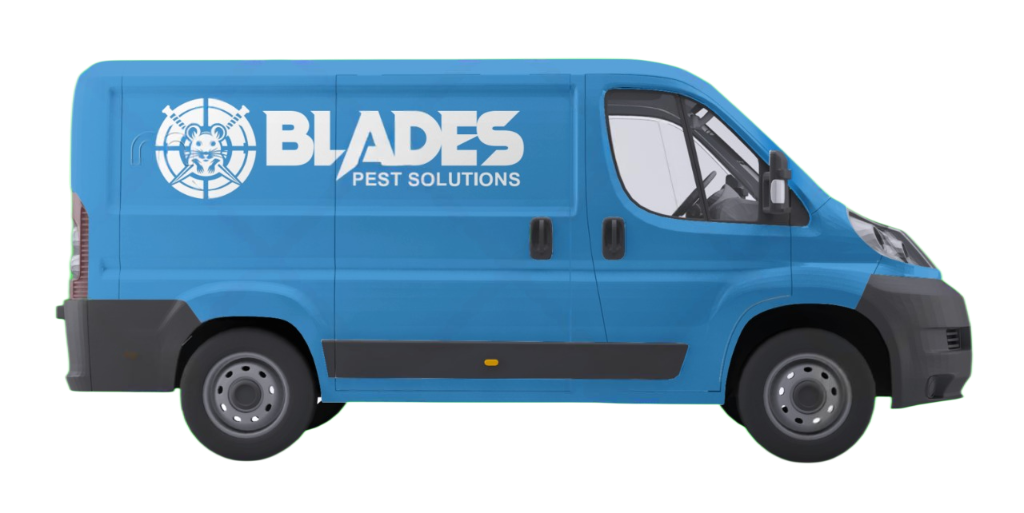Rat Identification
Rats are typically identified by their grey or brown fur, long, scaly tails, and robust bodies, measuring 20-40 cm in length including the tail. They have a pointed nose and small, beady eyes. Common signs of a rat infestation include:
- Dark, pellet-shaped droppings
- Gnaw marks on food packaging and structural components
- Greasy smudges along walls
- Nests made from shredded materials
Rat Advice
At Blades Pest Solutions, we recommend a thorough approach to rat control:
- Secure Food Sources: Store food in airtight containers and clean up spills and crumbs promptly.
- Reduce Clutter: Remove clutter from areas like basements, attics, and garages to eliminate potential nesting sites.
- Inspect and Seal: Check for holes or gaps in walls, floors, and foundations. Seal these entry points with durable materials such as steel wool, caulk, or metal sheeting.
- Trim Vegetation: Cut back overgrown plants around your property to reduce potential shelter and entry routes for rats.
Contact us today to learn more about our services and find the right solution for your pest control needs.
Rat Treatment
Blades Pest Solutions employs a comprehensive strategy to address rat infestations:
- Traps: We use snap traps and electronic traps to capture rats effectively.
- Rodenticides: When necessary, we use rodenticides safely and responsibly to minimise risk to non-target animals.
- Exclusion Techniques: We focus on sealing entry points and advising on structural repairs to prevent future infestations.
- Follow-Up: Our follow-up visits ensure the treatment is effective and allow us to adjust our approach as needed.
Rat Facts
- Disease Carriers: Rats can transmit diseases like leptospirosis, salmonella, and hantavirus, posing significant health risks.
- Destructive Chewing: Their gnawing can damage electrical wiring, increasing the risk of fires.
- Rapid Reproduction: Female rats can produce up to 12 pups every 21-23 days, leading to quick population growth if not controlled.
- Swimming Ability: Rats are excellent swimmers and can enter buildings through sewer pipes and other water sources.
- Adaptive Nature: Highly adaptable, rats can thrive in a range of environments, from urban to rural settings.



